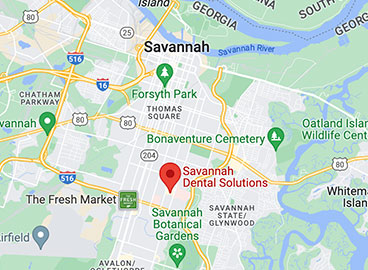
For many people, the idea of going to the dentist brings about feelings of anxiety. It is estimated that 36% of the population suffers from dental anxiety. For some it is even more serious, escalating to the level of dentophobia, and it is often related to iatrophobia (fear of doctors) and trypanophobia (fear of needles/injections).
Dental anxiety prevents some people from going to the dentist to get the necessary care that is so important for oral health. People with dental anxiety will avoid going to the dentist for any reason, from regular cleanings and exams to cavity fillings to root canals. They will even avoid getting treatment for serious dental conditions and live with the pain (and often over-medicate).
What causes dental anxiety? Typically it starts with just one negative experience at a dental office. It doesn’t necessarily mean that anything went wrong, it may have been just a first time cavity filling that incited the fear. It often begins in childhood and continues into adulthood.
What can be done about it? How can people with severe dental anxiety get the care they need?
Sedation Dentistry
For patients with severe dental anxiety, it can help to be sedated. Sedation dentistry refers to any form of medicated relaxation used during a dental procedure. Some sedation medications can be taken orally. Others must be administered intravenously. Sometimes a combination of sedation methods can be used. If a patient is severely afraid of needles, they may have trouble even having an IV put in for sedation. But an oral sedative taken first, or nitrous oxide (laughing gas) administered before the IV can help the patient relax.
Levels of Sedation
There are different levels of sedation that can be used. Which is best depends on the patient’s preference, the type of procedure being done, and the dentist’s recommendation.
- Minimal sedation. With minimal sedation you are awake, but medically relaxed so that you won’t feel any stressl.
- Moderate sedation. You’re still awake when moderately sedated, but you are more relaxed and typically won’t remember much about your procedure.
- Deep sedation. When deeply sedated you are partially “asleep” but can be brought back to awareness quickly when necessary. You will not be aware of your procedure at all.
- General anesthesia. Under general anesthesia you are completely unconscious. You won’t be aware of the procedure and you will be brought back to consciousness afterwards.
What to Expect Following Sedation
For some patients, even the idea of being sedated causes anxiety because of the loss of control. But knowing what to expect can help.
You will need a friend or family member to drive you home from a dental procedure that involves sedation of any kind. You may still feel the effects of the anesthesia for an hour or two after going home, but once it wears off you’ll be back to normal. You may feel tired for the rest of the day following your procedure and need to rest. But by the next day you’ll be able to resume your normal activities.
Savannah Dental Solutions Provides Sedation Dentistry
If you or someone you love avoids dental care due to extreme anxiety, sedation dentistry can help. Savannah Dental Solutions provides a wide range of sedation options to help anxious patients relax. We will discuss the various sedation options with you to decide on the best course of treatment to make you or your loved one comfortable. Sedation dentistry can put an end to dental anxiety for patients who have suffered from it for years. You can get the dental care you need without the stress and fear.
Call (912) 354-1366 or contact us today to schedule a consultation. We look forward to helping you overcome your anxiety to get the dental care you need.






